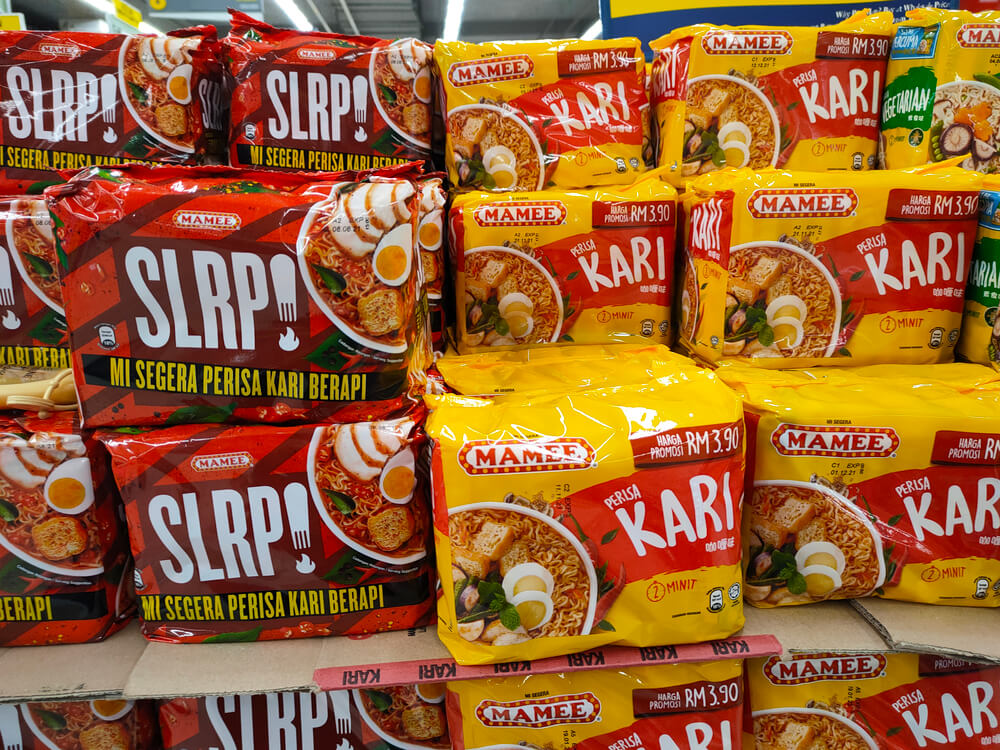Do Ramen Noodles Expire?
Ramen noodles (also known as instant noodles or cup noodles) are a popular food across the globe, and for good reason. They’re affordable, easy to cook, have a lengthy shelf life, and taste great. But one question that often comes up is “does ramen expire?” And if so, what happens when they do?
We’ll answer all of those questions about instant ramen noodles and more. We’ll discuss the expiration date on ramen packages, what happens if you eat expired ramen noodles, how to store them safely, and more.
So whether you’re a first-time ramen noodle eater or you love to eat ramen noodles throughout the week, read on for all the information you need about these tasty little packets of goodness!
Ramen Noodles and Expiration Dates: Does Ramen Expire?
An expiration date is a date after which a food item is no longer safe to eat. This doesn’t mean that the food will be harmful or taste bad – it just means that it might not be as nutritious as it once was and that there’s a chance it could contain bacteria that could make you sick.
And yes, ramen noodles do, in fact, expire, despite their long shelf life.
When do instant ramen noodles expire? The expiration date on ramen noodles will vary depending on the brand and the country of origin, but it’s typically around two years.
However, it’s important to note that this is just a general guideline – some packets of instant ramen noodles might expire sooner or later than that.
Can you eat instant noodles after the expiration date? In most cases, yes.
Eating Ramen After the Expiration Date
If the expiration date has passed, there’s no need to panic. Ramen noodles will still be safe to eat for some time as long as they haven’t been exposed to extreme temperatures or moisture.
If the instant ramen has been stored properly, it’s likely safe to eat instant ramen noodles for up to six months after their expiration date because of their long shelf life.
It’s worth noting that canned food can be kept shelf-stable for years, but instant ramen is rarely canned. Because ramen is typically sealed in bags and in paper cups, it is most susceptible to spoilage than canned foods and should be not treated the same way.
How to Safely Store Ramen to Prevent Spoilage
Where to Store
Ramen noodles should always be stored in a cool, dry place. This will help to extend their shelf life, maintain the taste and texture, and prevent them from spoiling. Ideally, you can store your ramen noodle in an air-tight container that can keep bugs away, too.
Damaged Packaging
It’s also important to monitor how well packaged the ramen is when you first purchase it. Holes in bags or paper cups will cause ramen to spoil much more quickly and can expose the food to bacteria and bugs.
If your ramen is in damaged packaging, move it to fresh, air-tight packaging as soon as possible, but recognize that it is still likely to expire faster than ramen that was in more reliable packaging.

Can Expired Ramen Make You Sick?
In most cases, eating expired ramen noodles will not make you sick.
However, if the noodles have been exposed to moisture or extreme temperatures, there is a small chance that they could contain harmful bacteria, such as E. coli, that can give you an upset stomach, to say the least.
If you are feeling sick after eating ramen noodles, it’s best to see your doctor and mention that you ate expired noodles recently. They may be able to help you determine if the noodles are the source of your illness.
Ramen that is stored improperly is far more likely to harbor the kind of bacteria that can make you sick.
Signs That Ramen Noodles Are Expired
Expired ramen noodles may still be safe to eat despite being past their best by date since they are dehydrated food. You can still eat expired instant noodles if you know what to look for.
- There are a few signs that can indicate that ramen noodles have expired:
- The noodles themselves may be harder or more brittle than usual. The ramen noodles may also have become discolored.
- The seasoning packets may be caked with dust or dried out. You may also find that the contents of the seasoning packet are wet or contain mold.
- If you are examining cup noodles, any water in the cup or added to the cup may have a strange odor.
- Bugs may have made their way into your ramen or your seasoning packets. This can happen when ramen is not stored properly.
- Finally, visible mold growth is a clear sign that your ramen noodles are no longer safe to eat.

What About Cooked Ramen with Fresh Noodles?
If you notice that your ramen noodles are rapidly approaching their expiration date, you can cook a large batch of soup and store it. This offers a great chance to meal prep.
Fresh ramen noodles can last in the fridge for up to four days. Be sure to only prepare the amount you can eat within that time frame unless you plan to freeze your ramen noodles.
Any ramen noodles kept in the fridge should be in some sort of air-tight container to preserve freshness and keep other fridge odors out.
How to Freeze Ramen Noodles
If you want to store your cooked ramen for a longer period, freezing is the best option. Cooked ramen can last in the freezer for up to two months.
To freeze ramen, place it in an airtight container or Ziploc bag. Make sure to press out all of the air before sealing. This will help to prevent freezer burn.
Then, place the container or bag in the freezer. It will typically take around two hours for your ramen to freeze completely.
Once frozen, you can remove as much or as little as you want and thaw it in the fridge overnight. You can also microwave it directly from frozen, but be sure to stir it occasionally to avoid hot spots.


[lasso rel="emergency-preparedness-more-a-manual-on-food-storage-and-survival-2nd-edition-revised-and-updated" id="35334"]